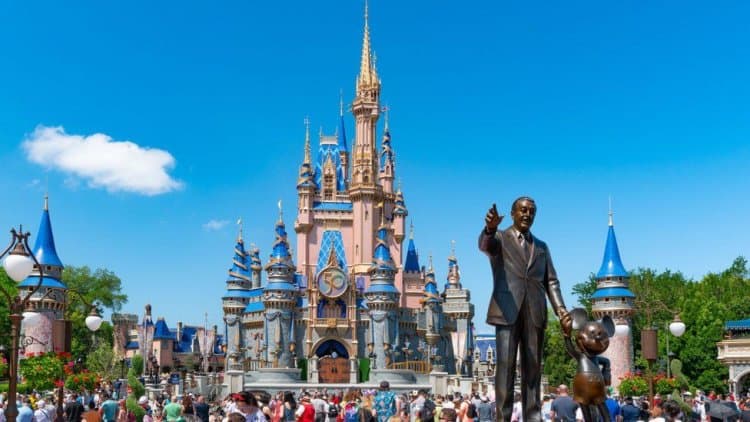
Disney sues Florida governor for breach of contract and violation of free speech rights
The recent lawsuit brought by The Walt Disney Company against Florida Governor Ron DeSantis has generated controversy in both legal and political spheres. The governor has been charged with contract violation and interference with free speech by the company. The dispute between Disney and the state of Florida over planned legislation, which would affect the company's ambitions for developing theme parks and regulating its monorails, is what gave rise to the case.
Additionally, Governor DeSantis has suggested building a prison near Walt Disney World, which Disney claims would harm its brand and reputation.
Disney's lawsuit accuses the governor of breaching a 1967 agreement with the state of Florida that granted Disney certain rights and privileges in exchange for its investment in the area. The agreement, known as the Reedy Creek Improvement District (RCID), created a quasi-governmental entity that allowed Disney to govern and regulate its property.
Disney claims that the proposed legislation violates the RCID agreement and undermines the company's ability to manage its property. Specifically, the legislation would allow the state to regulate the monorails that transport guests within Disney World, which Disney claims would interfere with its ability to provide a seamless and safe guest experience.
Moreover, Disney has accused Governor DeSantis of violating the company's First Amendment rights by suggesting that the state build a prison near Walt Disney World. The company claims that the proposal would damage its reputation as a brand.
The lawsuit raises several interesting legal questions. First, can Disney claim that the proposed legislation violates the RCID agreement? The answer likely depends on the specific language of the agreement and whether the proposed legislation conflicts with it. However, Disney's ability to regulate its property is a fundamental aspect of the agreement, and any attempt by the state to interfere with that right may constitute a breach.
Can Disney assert that its First Amendment rights have been violated? This query is more challenging. The First Amendment shields people and organizations against government censorship or reprisals for exercising their right to free expression. However, when it comes to commercial speech, the Supreme Court has acknowledged some restrictions on such rights. We'll have to wait and see if Disney's brand reputation is covered by such restrictions.
The lawsuit calls into question how big businesses and state governments interact. Disney's power to run and control its property is exceptional, but it raises concerns about whether such arrangements stifle democracy by establishing a separate government that is only answerable to the company.
For any legal queries or information, contact ask@tlr.ae or call us on +971526443004